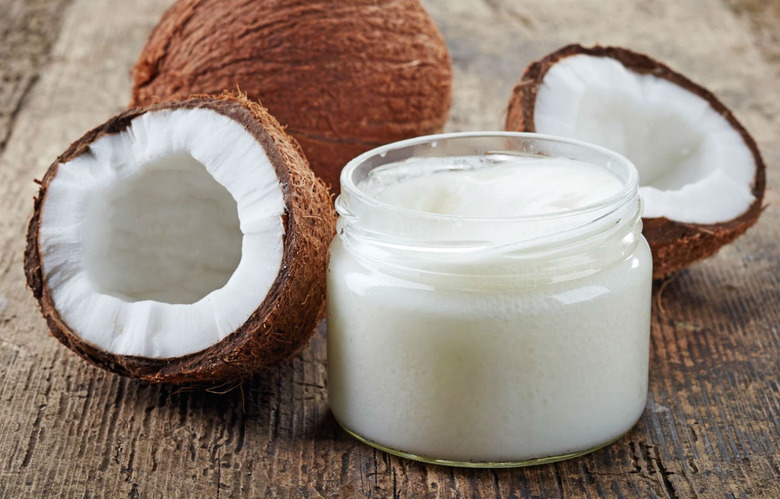Does All That Saturated Fat Make Coconut Oil Bad For You?
Coconut oil is currently the darling of the healthy eating world. Not only do its supporters claim that it's insanely healthy for you, it can even clear up acne and shine up your hair! But isn't it high in saturated fat? And isn't saturated fat bad for you?
Believe it or not, saturated fat is not, for the most part, bad for you. It raises HDL cholesterol (the good kind, as opposed to LDL), and improves your triglyceride/HDL ratio, which is a marker of good heart health. In fact, multiple studies have proven that eating saturated fat has no link to heart disease or stroke. This isn't to say that you should go around eating double cheeseburgers every day, because excess fat will be stored on your body, and LDL cholesterol and trans fats are still bad for you.
Now that we've gotten that out of the way, let's talk about what coconut oil can do for you. First of all, it has a very high smoke point (about 350 degrees F), so it's great for cooking. Second, it can last for up to a year without going rancid, which is good. Now things get a little complicated: The type of saturated fat in coconut oil is called medium-chain triglycerides, which go right from the digestive tract to the liver without the need for additional processing by bile acid, so the body can use it as a quick energy source. It's broken down into something called ketones, which can help reduce the appetite as well as reduce the occurrence of seizures. It also contains lauric acid, which can help the body fight infection. Some studies have also shown that eating coconut oil can increase metabolism and reduce belly fat.
Oh, and it also makes for a pretty good sunscreen, blocking about 20 percent of the sun's rays.
While there's no such thing as a "superfood," (it's all just food!), coconut oil isn't anything to be afraid of. It has some healthy properties, and the type of saturated fat it contains isn't dangerous.
